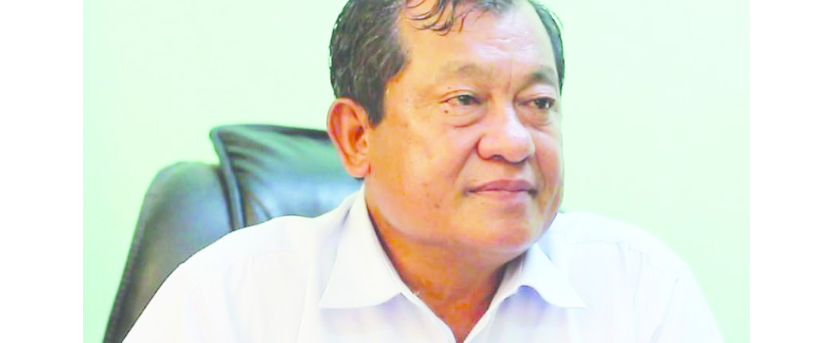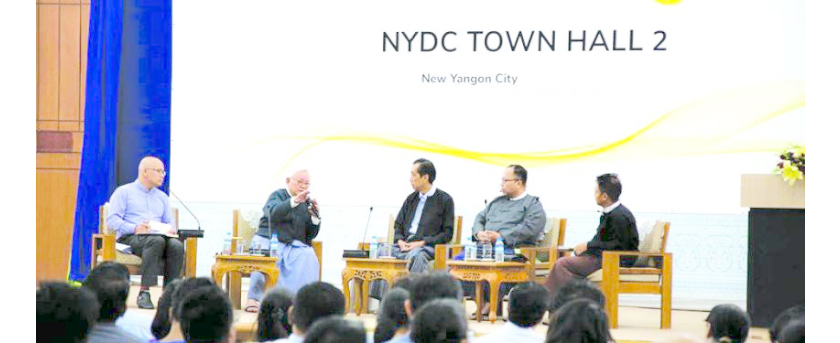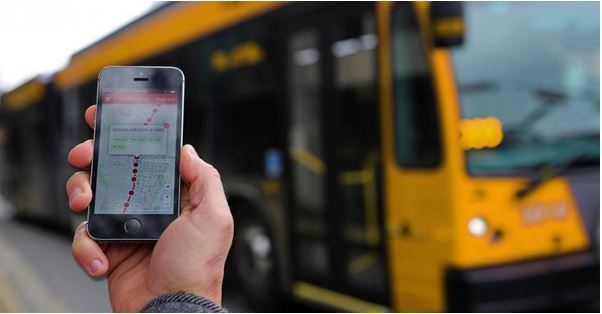
Myanmar News Updated
Highlight Myanmar News

YBS: An Inside Look at Yangon’s Bus System
![]() 21/05/2019
21/05/2019
AUTHOR: (MMK)
Millions of commuters in Yangon use public transportation each day to navigate Myanmar’s largest city. The vast majority cannot afford to purchase their own vehicle, but instead rely on the bus system. In an effort to make the bus system safer for commuters, the government upgraded the public bus system; this was highlighted by changing the name to the Yangon Bus Service (YBS) in 2017.
The Yangon Regional Transport Authority (YRTA) oversees and regulates the various private bus lines that make up the YBS. Some of the major changes the YRTA made included retiring old and unsafe buses, refreshed bus routes, and a new card reader system, the latter of which is yet to be fully implemented. Where do things stand two years after overhauling the bus system?
To find out, we talked to U Min Naing, Director of Parami Bus Line, under Bandula Transportation Company for an inside perspective.
MBT: Some of the bus lines said they are losing money in providing transportation services. What about your bus line?
U Min Naing: Companies that may only operate a few buses can run into some difficulties. For instance, if a bus breaks down, it may leave the owner few or no buses to continue generating income. However, we have 314 buses available to cover our seven bus routes. Of that total, we have 280-290 buses running each day. When one of our buses breaks down, we can easily replace it while it goes in for repair. Maintaining redundancy in our fleet size allows us to cover unexpected expenses and losses. As to the bus lines that are losing money, it may be better for them to follow this example.
What do you think about the bus fares?
K200 per ride is quite low compared to current operating costs, however, increasing bus fares is the purview of the regional government. I’ve often proposed increasing the fares during YRTA meetings, but the government can’t increase the fares immediately; they need to take into consideration the economic situation of the commuters.
Do you think the new card payment system can be successful in the long run?
To implement the card payment system, we need to consider our culture, the economic condition, and habits of our people. For example, someone with a regular income can afford to top up their card K5,000-10,000. However, people living hand-to-mouth (having only the bare essentials) can’t afford to prepay. They are forced to pay in cash for each ride only when needed.
Are there any difficulties in using the card payment system?
One concern that may or may not be an issue is rush hour. There will be many passengers getting on the bus during this busy period, and it may take a long time for them to swipe the card through the reader. This could potentially cause delays and/or traffic problems. It may be necessary to employ additional technology to reduce the issue the issue if it comes up.
On the other hand, let’s say a commuters card is at a zero balance, but the passenger passes the card at reader without knowing the issue. What is the appropriate response so that we aren’t taken advantage of, but the customer is properly cared for? These are some of the challenges we might face.
There have been some negative reports about bad drivers. What is the response in such a case?
When a passengers reports driver, our own investigation team works with the YRTA and meets with the driver. If the report is accurate, we provide the driver with a first warning, and again for a second offense. If it happens a third time we will fine him. Beyond three violations, we will suspend the driver for one week. If the offense is serious in nature, he will be slapped with a one month suspension or termination of employment.
Do you often check the total income of the bus?
Yes, we do. We sometimes take a ride among the passengers and count the total number of riders with handheld counters. Then we compare that to the total money on hand. There is always the gap between the number of passenger and amount of money. If 100 passengers take the bus, the total amount of money should be K20,000. The biggest gap we’ve seen so far is 32 percent.
What should be done to make YBS successful?
A successful system requires the cooperation of everyone involved: the government, bus lines, and passengers. For example, passengers need to pay the fare as set. Some passengers end up paying K500 because of a lack of change, while others try to get away with paying only K50-100, and in some cases nothing at all. Therefore, I want to emphasis that government, passengers and bus lines need to work together.
Do you think YBS bus system is successful?
Yes, I believe the system is successful.
Myanmar Business Today would like to thank the Director for his time in considering the current state of the YBS. The YRTA has made find progress in improving the public transportation system, and it's clear the private bus lines are doing their part in providing a quality service.
With that said, there is still room for improvement. Some of the persistent issues include: buses in poor condition, aggressive bus drivers in outlying areas who speed and show little consideration for motorcycles or other drivers on the road, and a lack of buses during rush hour.
Related News
-

Suzuki Made Over 10,000 Vehicles at Thilawa
AUTHOR: ZIN THU TUN Suzuki Motor Corporation said that its plant at Thilawa Special Economic Zone in Yangon has produced over 10,000 vehicles in the year since it shifted most of its production from the plant in South Dagon Township to the new plant at Thilawa Special Economic Zone.
Read More 07/05/2019
07/05/2019 -

How NYDC Develops New Yangon City Sustainably
AUTHOR: EI THANDAR TUN For the scoping of the environmental study perimeter for New Yangon City project, the NYDC team has conducted several discussions with relevant specialists and officers from the Ministry of Natural Resources and Environmental Conservation (MONREC) - Environmental Conservation Department (ECD) since mid-2018.
Read More 01/05/2019
01/05/2019 -

Yangon Bus App to Launch Within Three Months
Asia Starmar Transport Intelligent Co., Ltd is developing a mobile application called Yangon Bus, which will provide information of the entire bus system such as the location of a bus in real time, and expects to launch the new app in about three months.
Read More 13/02/2019
13/02/2019
